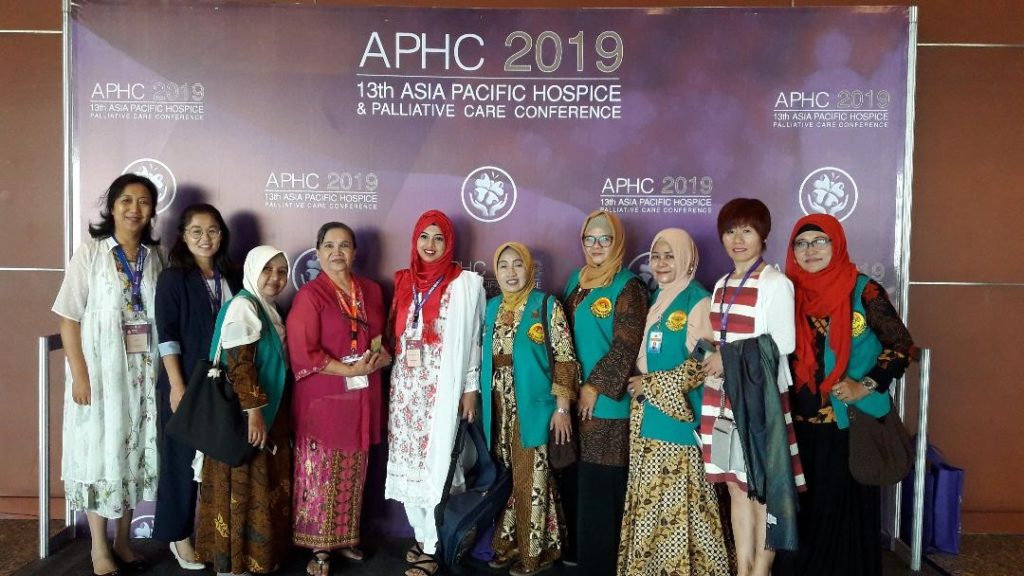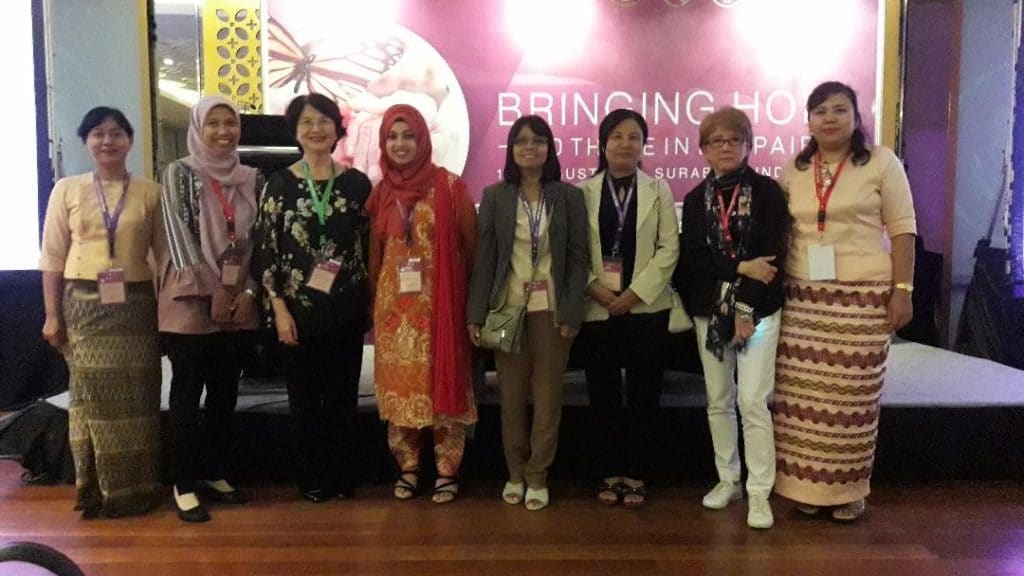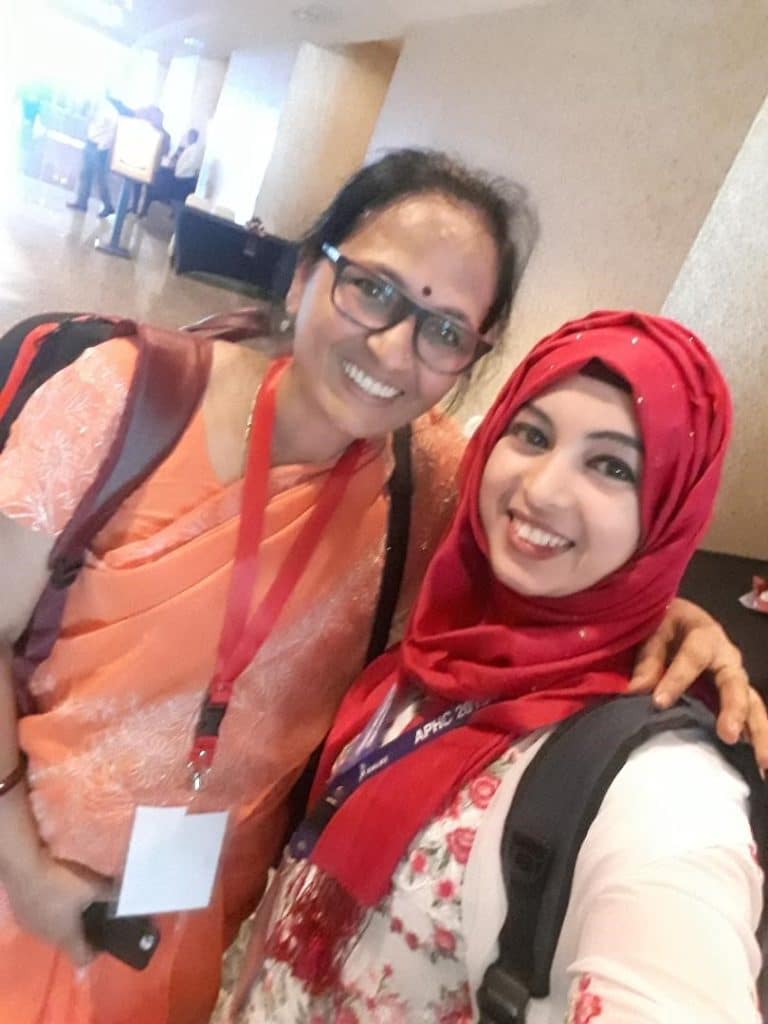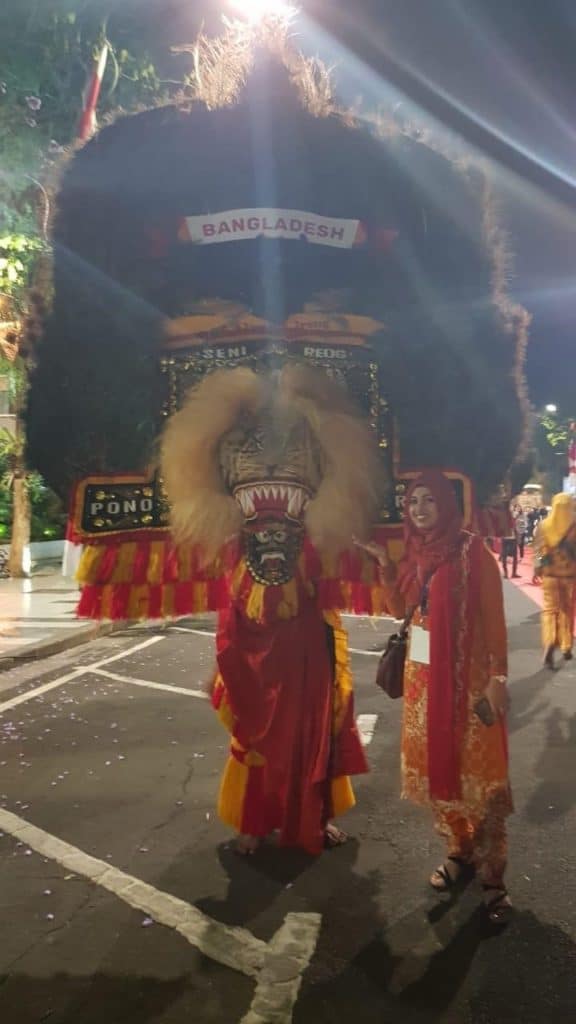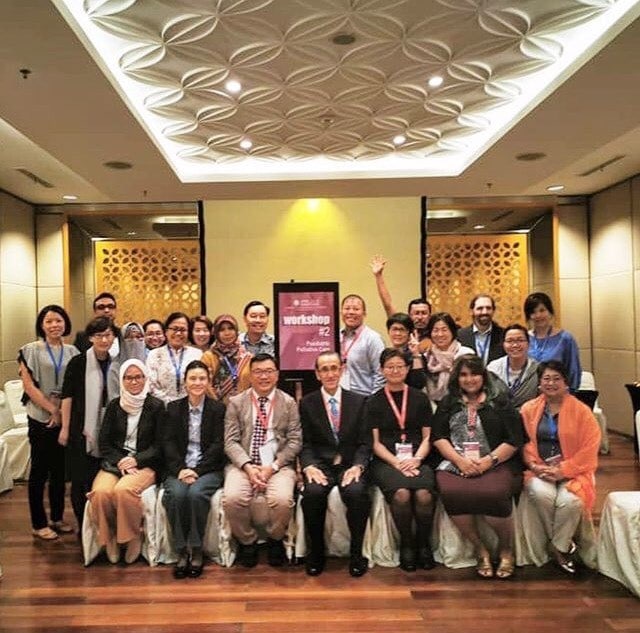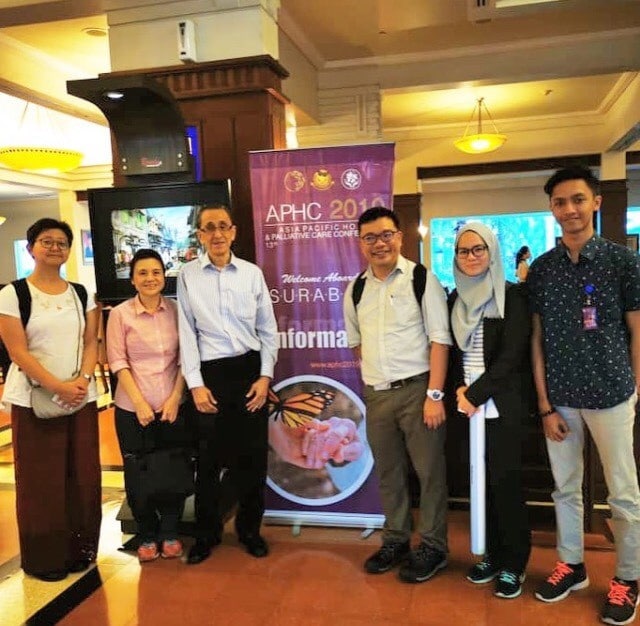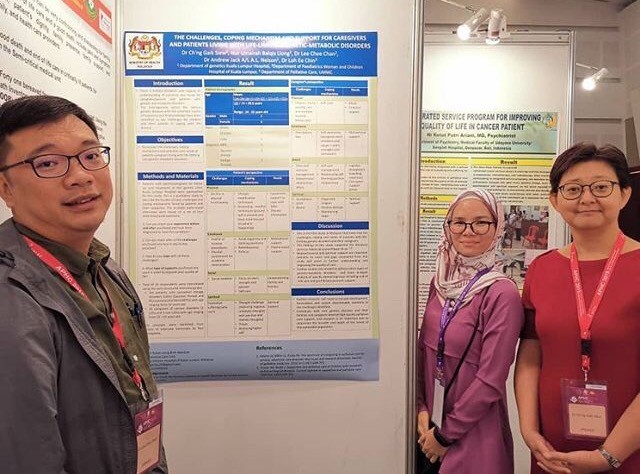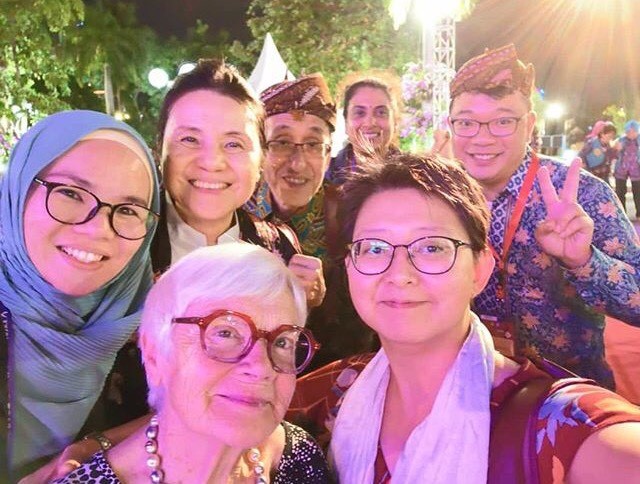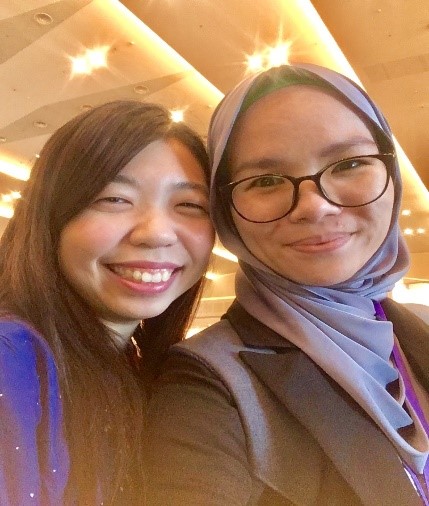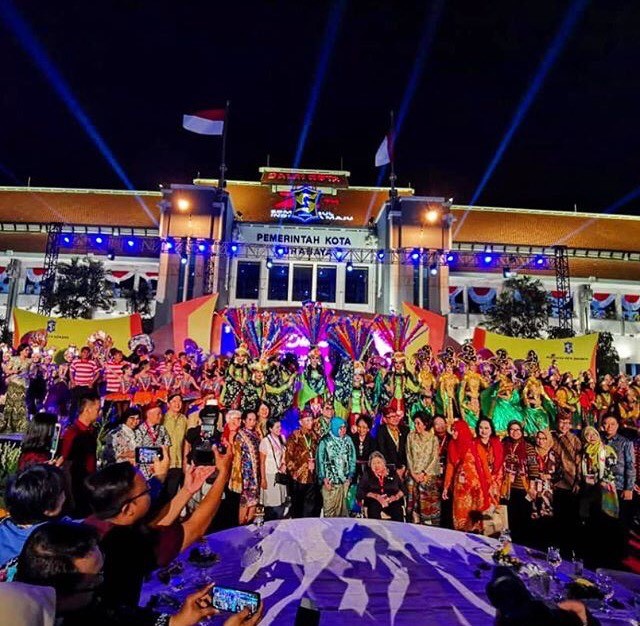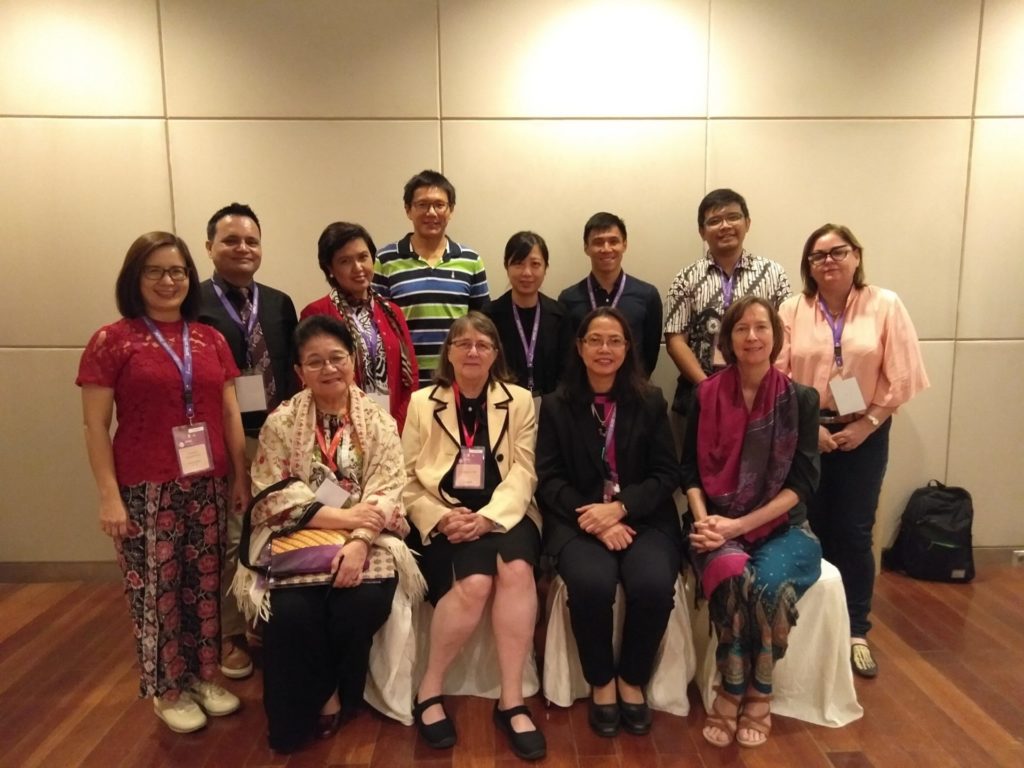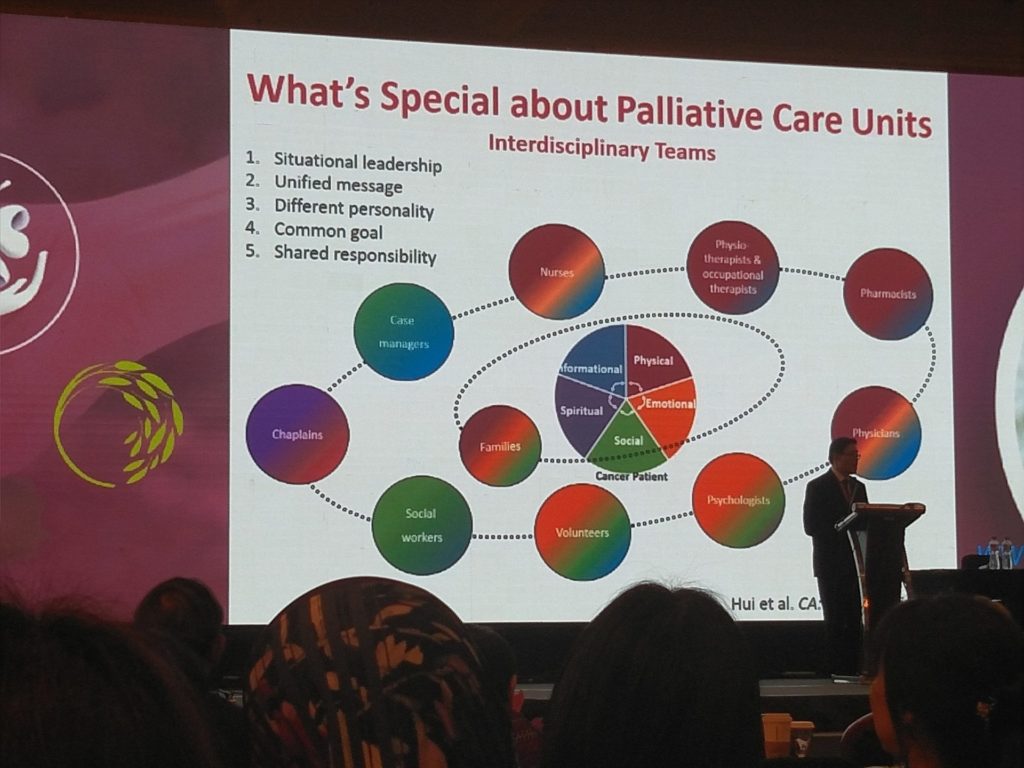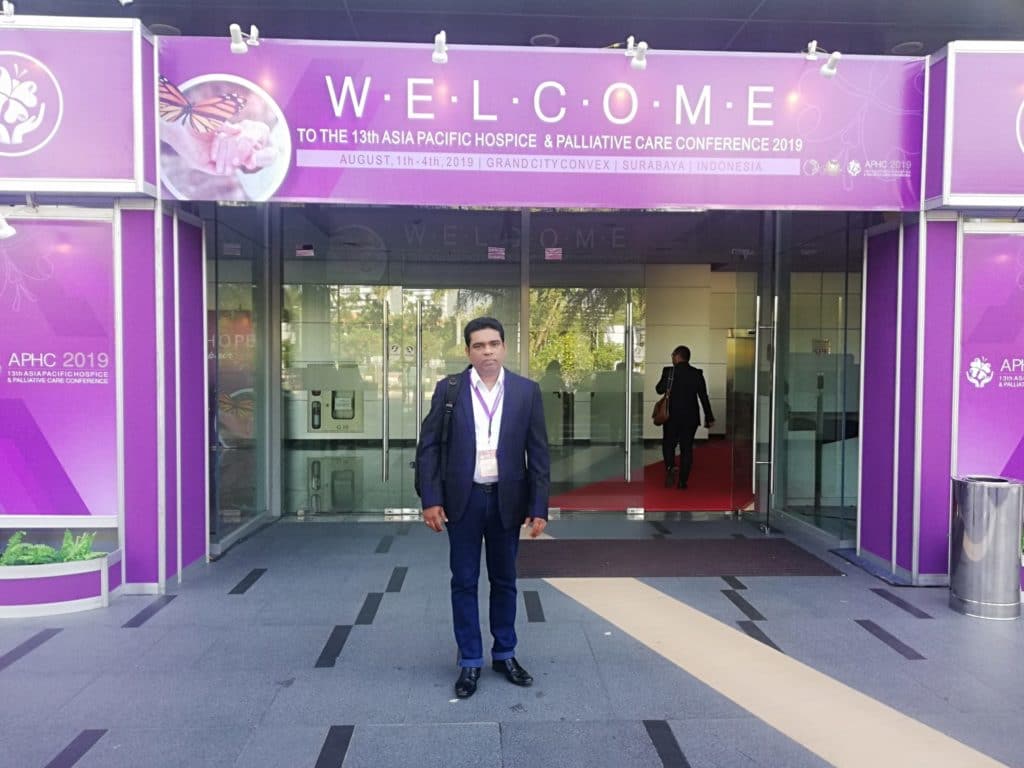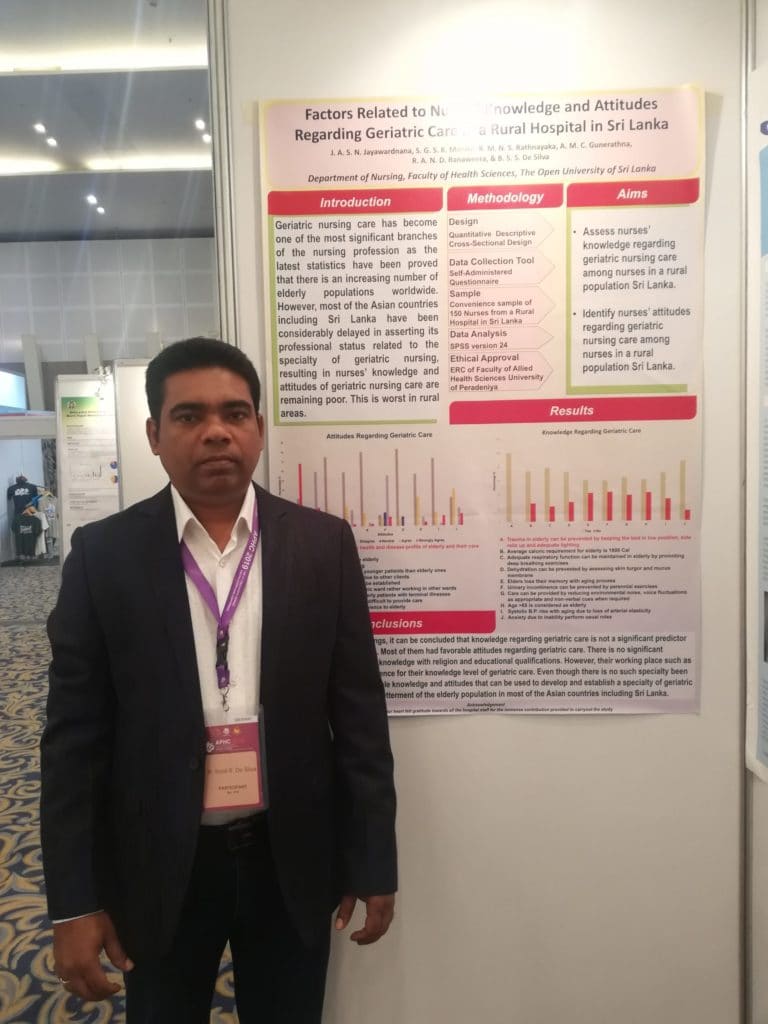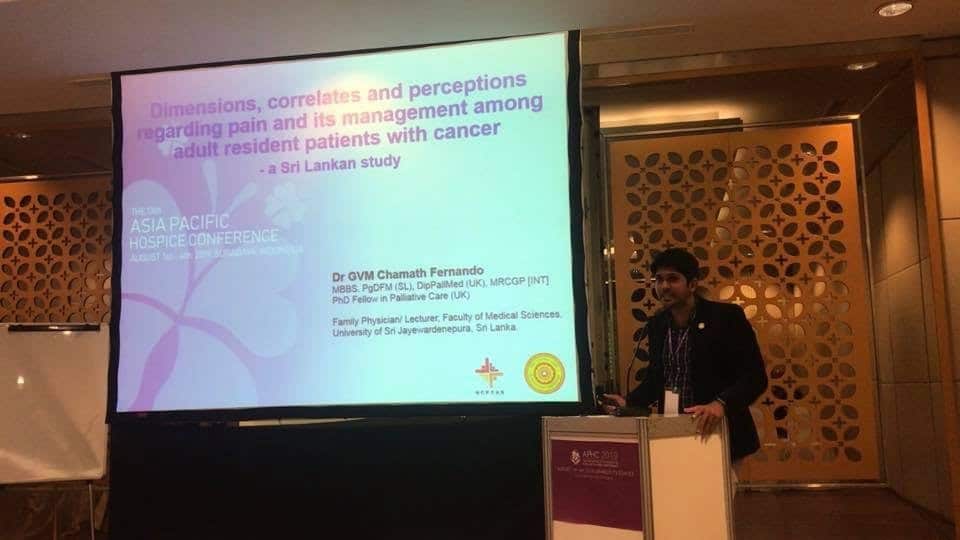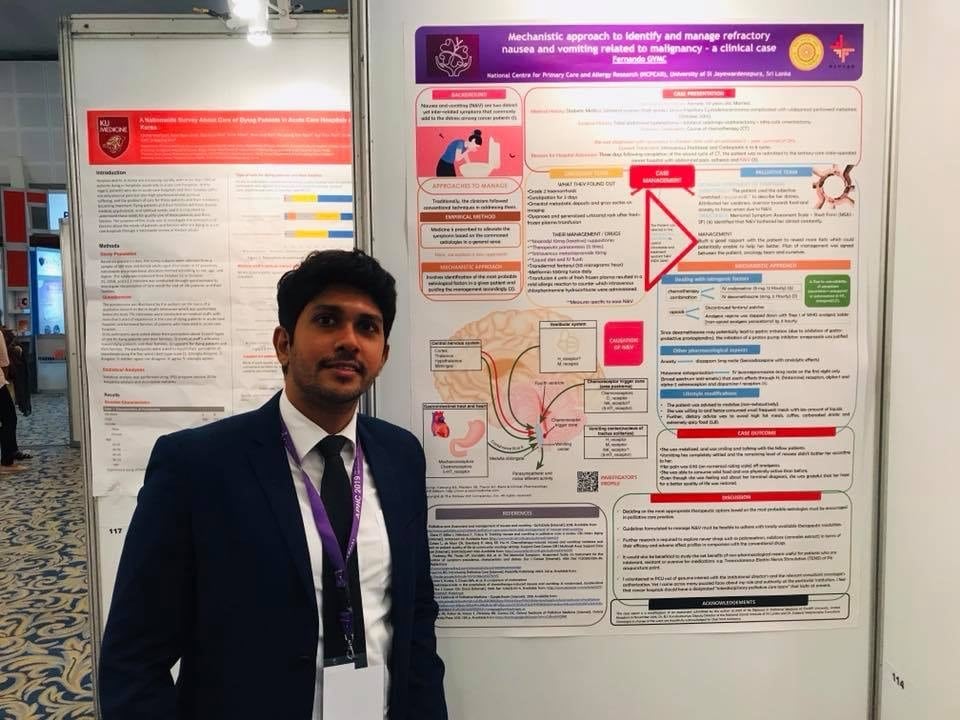APHN awarded bursaries to a select handful of our members to attend the 13th Asia Pacific Hospice Conference 2019 in Surabaya, Indonesia this year. Below are some of the reports written by our bursary recipients on their conference experience.
( These reports have been edited by Djin Tay- APHN Volunteer Editor)
Israt Jahan Dowel (Bangladesh)
It was a great experience to attend the Asia Pacific Hospice Palliative Conference in Surabaya, Indonesia on 1st to 4th August, 2019. I am Dr. Israt Jahan Dowel, working dedicatedly as a physician in Palliative care, Bangladesh, since March, 2018. I had already completed the Lien Collaborative’s APHN Training of Trainers program from July, 2018 to March, 2018, which enlightened me with the great knowledge about palliative care and pain management.
For APHC 2019, I was selected for poster presentation as well as oral presentation. It was a huge achievement for me which made me more confident in my career, showed me the path how to improve palliative care services in my country, and taught me how to overcome obstacles.
Because of the similar cultures and socioeconomic conditions, the presentation of other Asian countries inspired and helped me to get more ideas to improve our palliative set up. I found out our ranking of Bangladesh among palliative care providers of Asia. After coming back to my country, I met with other palliative care physicians and shared my knowledge and experiences. I have started providing palliative care nurse training at the Bangladesh Palliative and Supportive Care Foundation, where the 1st training was held on 9th September 2019. There, 20 BSc nurses was trained by me and Dr. Rumana Dowla regarding the basics of palliative and home care services.
APHC made it easier to meet and get to know other participants from India, Singapore, Indonesia, Malaysia, Myanmar, Bhutan, Sri Lanka, Taiwan, Japan, Australia, New Zealand, Oman etc. who were really helpful. We have established social communication on platforms such as WhatsApp and Facebook and shared our newer achievements and experiences. Some of them also offered for me to have training at their center after my upcoming graduation. This friendly environment made it suitable for referral of patients among each other.
Finally, I believe participation in this kind of conferences should be encouraged among healthcare providers of low socioeconomic countries, who can contribute toward the developments of palliative and hospice care services in their native countries.
Lu Bai (China)
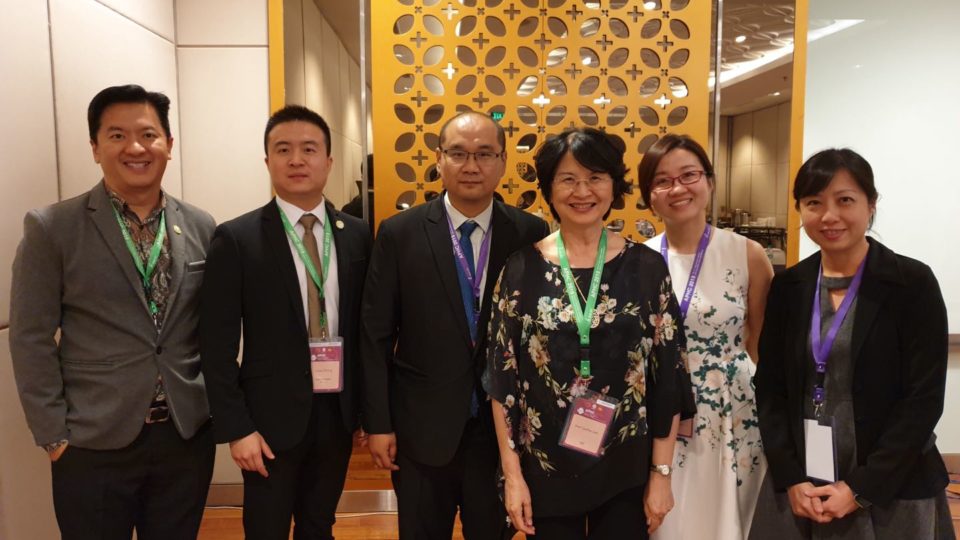
It was my great honor to attend the APHN meeting and receive this bursary. The conference left a deep impression on me. It provided me a great opportunity to understand the development and challenges of palliative care in other countries and sectors of the world. I have some thoughts to share.
With regards to symptom control, the conference helped me realize that the most important aspect of symptom control is to identify problems, conduct research to guide clinical practice, and form adapted guidelines for China. For example, different phases of life have different symptoms. While we are quite familiar with the symptoms of impending death, research may help us better predict life expectancy as accurately as possible. Better understanding of life expectancy would benefit decision-making for both doctors and family members. Thus, improving scientific research capabilities is the main task for us.
The development of palliative care in China is in the preliminary stage. There are four ways that we can learn from Taiwan’s experience in establishing palliative care: 1) evidence-based treatments, 2) policy support from the government, 3) specialized education, and 4) professional clinical care. Challenges do exist in every part in China. The success of the palliative care field requires the unity of different industries. Also, we need adequate support of funding, policy, and professional staffing.
Last but not least, people in China avoid mentioning any word that relates to “death”. The result is that the more they fear death, the greater suffering they experience when they are dying. In China, there is a “living will” campaign to advocate for people to talk about death and make a plan of care for when people face an incurable disease. In western countries, an advanced care plan (ACP) plays a more important role than “living will” in China, for it has a legal effect. If ACP could be established in China, people would be able to enjoy high quality and dignified death, and the doctor-patient relationship would be more harmonious.
There is no ready-made model for us to copy, so we need to create a model that suits us. I hope that one day, everyone will be able to enjoy an equal, comprehensive, efficient medical services in line with local culture.
Thiagarajan Mohanasundaram (India)
The APHN 2019 conference in Surabaya gave me an opportunity to be a part of that conference which was organized in a grand manner.
I displayed a poster entitled, ”Cost Effective Management for Family Care Givers in the Provision of Home Based Palliative Care in Developing and Under Developed Countries”.
The venue, reception, scientific sessions, and posters all helped me develop more interest in the provision of palliative care in the Asia Pacific region.
It also enabled to meet various experienced professionals in the field of palliative care.
Thank you for the opportunity.
Nur Umairah Balqis Liong Binti Abdullah (Malaysia)
On the 1st till 4th of August 2019, the 13th Asia Pacific Hospice Conference was co-organised by the Indonesian Palliative Society (MPI) and the Asia Pacific Hospice Palliative Care Network (APHN). The event was held at the Grand City Convention Centre in Surabaya. Surabaya is not only the second largest city in Indonesia, but it’s also the city where palliative care was first established in the country in 1992. The theme of this year’s conference was ‘Giving Hope to Those in Despair’. It was attended by general practitioners and specialists, nurses, pharmacists, other healthcare workers, and also volunteers whom are involved in palliative care internationally.
I was pleased to enjoy the beautiful sights and unique culture, as well as visiting the medical, tourism, and industrial exhibitions. Aside from spending time interacting with colleagues, attending the conference also provided even more opportunities than I might have anticipated. The pre-conference workshops on paediatric care helped to engage us with the experts to enhance skills, knowledge and understanding in paediatric end of life matters. Here, all medical peers could exchange ideas and knowledge with one another on a more personal level. I also found that the conference opened up wonderful opportunities for us to gain valuable connections. Everyone could receive community advice on how to effectively market their services and mission statements via emails and social network.
The opening ceremony was amazing and entertaining, with the regional delegates treated to a marching band, traditional dances, and an accomplished children’s Angklung orchestra. Welcoming the delegates with the opening speeches were Dr Dradjat R. Suardi (chairman of the APHC 2019 organising committee), APHN chairperson Dr Cynthia Goh, and Surabaya Mayor Tris-Rismaharini.
The 5 plenaries were packed with insights and updates on different aspects of palliative care issues, research and evidence-based practices, including advanced care planning (ACP), end-of-life issues, chronic breathlessness, health for the elderly, and early palliative care in cancer and non-cancer patient. Learning the newest and latest about a given medical topic was helpful. Talks included basic standard operating procedures, legal guidelines, physician/patient relationships, which gave us the direction needed when considering options. The conference was helpful in providing advice on these particular topics.
I also found many interesting concurrent scientific symposia throughout the 3 days, including a notable session on ‘Palliative Care in Non-Cancer and other settings’ by Dr Joanne Lynn. This session was an interactive concurrent session with the delegates sharing about the state of palliative care in their countries, where systems ranged from free palliative care given through government healthcare programmes to non-profit hospice services based on volunteers and donations. The session fostered participation in panel discussion and one-on-one interviews. It encouraged attendees to share opinions and experiences that could prove beneficial for private practice or a facility. She touched on the importance of integrating palliative care early with geriatric and other non-cancer settings, by highlighting the needs that will benefit from both general and specialist palliative care.
Also, a session on Communication in Advanced Care Planning (ACP) helped me to gain a wider perspective and understanding on ACP. This can be related to personal experiences about how to deal with the challenges faced in reality and helps to prepare my patients and caregivers for discussion, acknowledge their emotions and concerns for future. As a paediatric palliative care nurse, it has been challenging to apply ACP to my patients especially when it comes to parent/ caregiver’s decision making, particularly within the community setting, but it is always possible to do it.
I had also presented a poster at the conference and found the session exciting and inspiring. It will definitely encourage me to move on and continue to persevere in bringing palliative care to our community.
The closing ceremony on Aug 4th was a closing speech by Dr. Dradjat R.Suardi , followed by a prize-giving ceremony for the 3 best oral and poster presentations. The Japan team also gave a short presentation for the upcoming 14th APHC in 2021. Attending a conference like this leaves a positive impact on my career for many years to come, not only with regards to networking opportunities, but also for achieving certain business objectives while learning with peers who have similar interests.
Woon Fang Ng (Malaysia)

It was a great opportunity to be able to attend my first Asia Pacific Hospice Conference in Surabaya. This conference was a good platform for networking, meeting delegates from different countries, and making new friends. Other than listening to lectures from the experts in the palliative field, I liked the small group meet-the-expert sessions, having an up-close discussion with Dr Meera Agar regarding research directions, and in-depth learning about clinical care. I enjoyed reading the scientific posters and learning from others during their poster presentations. The conference also provided me an opportunity to present my own poster.
The preconference workshop exposed me to current research about symptom control such as breathlessness. I also learned that research should focus on both patients and the carers. I learned about quality of life in advanced stage dementia. I liked the discussion theme of combined palliative and geriatric care, especially due to the increased needs of the aging population. I have learned about the development of advance care planning from representatives from various countries. This provided great eye-opening lessons for the delegates to bring back and build on in their respective countries.
We had a chance to meet the APHN staff, including Professor Cynthia Goh, who spent time to talk to each of us and get to know our work in palliative care in our countries. Prof. Cynthia Goh is always a role model for us. I was also glad to talk to the other staff of APHN and get to know the organisation better.
I am grateful to our Indonesian host, especially the Mayor of Surabaya who invited us to the Gala Dinner and Cultural Night. I shared the picture of the palliative garden in Surabaya with our hospice in our country. I am motivated to continue the journey and efforts for the expansion of palliative services in our local settings and the Asia Pacific region.
Dipesh Dhital (Nepal)
It was indeed an honor and great privilege to be a participant in the APHC 2019 conference held at Surabaya, Indonesia. I would like to express my sincere gratitude to the organizing team of APHC 2019 and the executive body of APHN.
The APHN bursary turned out to be a great boon, and a very fruitful and great help for me. It helped me to expand the horizon of my knowledge and skills in pain and palliative care. It was also fun because I also got to see Indonesia, Indonesian society, culture, and development. It will continue to help me to expand my thinking and develop maturity in dealing with palliative patients.
The theme of the conference “Bringing Hope to Those in Despair” is in itself a very emotional and effective theme. This theme always reminds me for more dedication, care and honest effort to serve the patients that are in despair. This theme is very much relevant for my country–Nepal; which holds a least developed country status. I work in a pain and palliative care department at a non-profit community hospital and usually come across very terminally ill cancer patients. I have to deal with end of life issues most of the time. In the last days of life, people are usually in anguish and in despair– physically, mentally, financially, spiritually, and socially. In a nutshell, this theme always reminds me of caring the patients holistically so that we bring hope to those patients who are in despair and anguish.
It was a great opportunity to meet international experts and share in their experiences. I received the opportunity to exchange my experiences and learn about what other colleagues are doing in rest of the world. We here in Nepal, due to our poor financial condition, are not able to get exposed to such grand international events like the APHC conference. So, in every aspect it was a great learning experience for me.
This bursary also helped my department and services because I was able to share my experiences from the conference with my colleagues. I told them about what I had learnt during the conference and transferred the knowledge that I had acquired during the conference.
In summary, attending the conference turned out to be a very useful milestone in development of my career and in my pursuit of serving the poor common people of Nepal. I am hopeful and determined to bring hope to those in despair.
B. Sunil S. De Silva (Sri Lanka)
This was a great opportunity for me to present our research work in palliative care to the international audience. Meeting, networking, listening, and reading up on the research activities of international world-class palliative care experts have helped me to broaden my understanding of palliative care. I have already built up some connections with scholars in this event for future collaborations in research. Furthermore, I was fortunate to meet Professor Cynthia Goh and the staff of APHN personally to discuss palliative care developments in Sri Lanka.
As a Senior Lecturer in Nursing at the Open University of Sri Lanka, the new skills and knowledge I gained would definitely help me contribute to education, research, advocacy, and policy-making activities for the advancement of palliative care in my University as well as in the country. I have already commenced palliative care educational activities for my nursing students at the Open University of Sri Lanka. As a PhD student in the field of palliative care at the University of New Mexico, USA, this knowledge and skills would also further help me in my academic efforts.
As palliative care in Sri Lanka is at very premature level, education and the advocacy that results from new skills and knowledge that were acquired from the conference can be the strongest drivers to develop palliative care education and research for Sri Lankan nurses. It will further help to develop the specialty of palliative care in Sri Lanka which was not properly practiced within the Sri Lankan health care system yet.
Thank you for the scholarship that partially covered my expenses and was a great help to allow me to participate in the conference.
Chamath Fernando (Sri Lanka)
It was such a privilege to attend one of the largest palliative care conferences in the Asia Pacific Region as one of the three representatives of Sri Lanka. I learnt about this conference during my visit to Singapore where I attended a previous conference of this series in 2019. It is through this collaboration with APHN that I was able to commence the webinar series on palliative care-related themes in the National Centre for Primary Care and Allergy Research, University of Sri Jayewardenepura. The conference was very well organised and the Indonesian organizing team was extremely hospitable and supportive.
On the 1st of August, the three representatives of Sri Lanka comprising of the Deputy Director of the National Cancer Programme, the Senior Lecturer in Nursing from Open University of Sri Lanka, and myself, were invited for the country-level meeting with Professor Cynthia Ruth Goh– Chair for APHN. We discussed long-term plans to establish the palliative care discipline sustainably in Sri Lanka. The Professor acknowledged my work in the field of palliative care research in Sri Lanka specifically at the meeting. The Director of the National Cancer Control Programme also presented the country report on the progress made in Sri Lanka in relation to palliative care and drug availability.
I gained substantial knowledge on the new developments in the discipline through the plenaries, talks and symposia conducted by world renowned professors and doctors. The ‘Meet the Experts’ session held in the early morning prior to the commencement of the 2nd day of the conference allowed me to meet Dr David Hui, a consultant palliative physician from the USA where topics for further research were discussed. Our involvements with the clinicians and academics in the palliative care field raised the awareness about Sri Lanka’s health indices and tertiary medical education status globally.
My presentation on the magnitude of the problem with pain management in a tertiary care cancer institution in Sri Lanka was of interest to many parties. While they appreciated my efforts to improve pain assessment and management among cancer patients, they also provided valuable suggestions for future research. The case report I communicated through a poster presentation also attracted many clinicians. They were particularly impressed with my voluntary yet authorized involvement with the National Cancer Institute of Sri Lanka and the exercise of moving on to seek for effective alternative therapies for the management of symptoms in the absence of optimum treatment modes.

